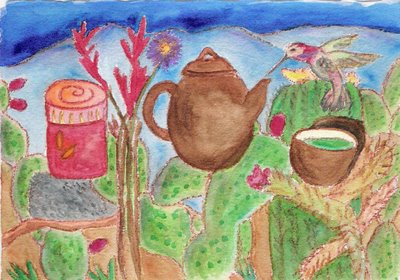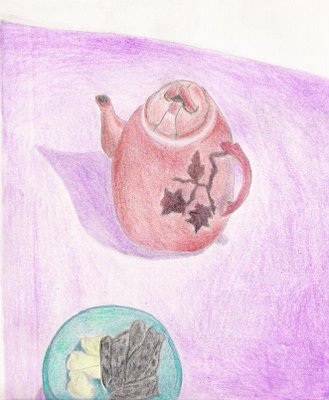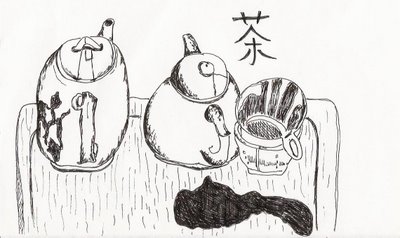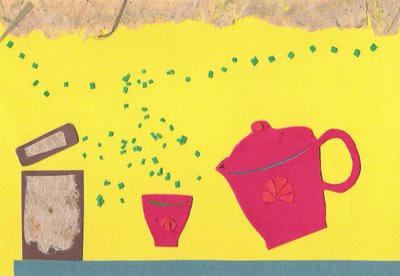
Thursday, August 31, 2006
Tuesday, August 29, 2006
Monday, August 28, 2006
Thursday, August 24, 2006
teapot no. 85
Wednesday, August 23, 2006
Mosquito Haiku
 Lately, I've become really good at catching mosquitos in my house with one swoop of my hand. A couple of days ago, I caught a particularly tenacious one right in front of this poster of the Dalai Lama which hangs above my kitchen sink. As I happily killed that mosquito, I looked up to see His Holiness looking down on me....
Lately, I've become really good at catching mosquitos in my house with one swoop of my hand. A couple of days ago, I caught a particularly tenacious one right in front of this poster of the Dalai Lama which hangs above my kitchen sink. As I happily killed that mosquito, I looked up to see His Holiness looking down on me.... And that prompted this haiku.
* * * * * * *
Watch it, mosquito--
I'm closing in on you now
Oh--Your Holiness!
* * * * * * *
The view of interdependence makes for a great openness of mind. In general, instead of realizing that what we experience arises from a complicated network of causes, we tend to attribute happiness or sadness, for example, to single, individual sources. But if this were so, as soon as we came into contact with what we consider to be good, we would be automatically happy, and conversely, in the case of bad things, invariably sad. The causes of joy and sorrow would be easy to identify and target. It would all be very simple, and there would be good reason for our anger and attachment. When, on the other hand, we consider that everything we experience results from a complex interplay of causes and conditions, we find that there is no single thing to desire or resent, and it is more difficult for the afflictions of attachments or anger to arise. In this way, the view of interdependence makes our minds more relaxed and open.
~ His Holiness the Dalai Lama
Thursday, August 17, 2006
Monday, August 14, 2006
Wednesday, August 09, 2006
Subscribe to:
Comments (Atom)















